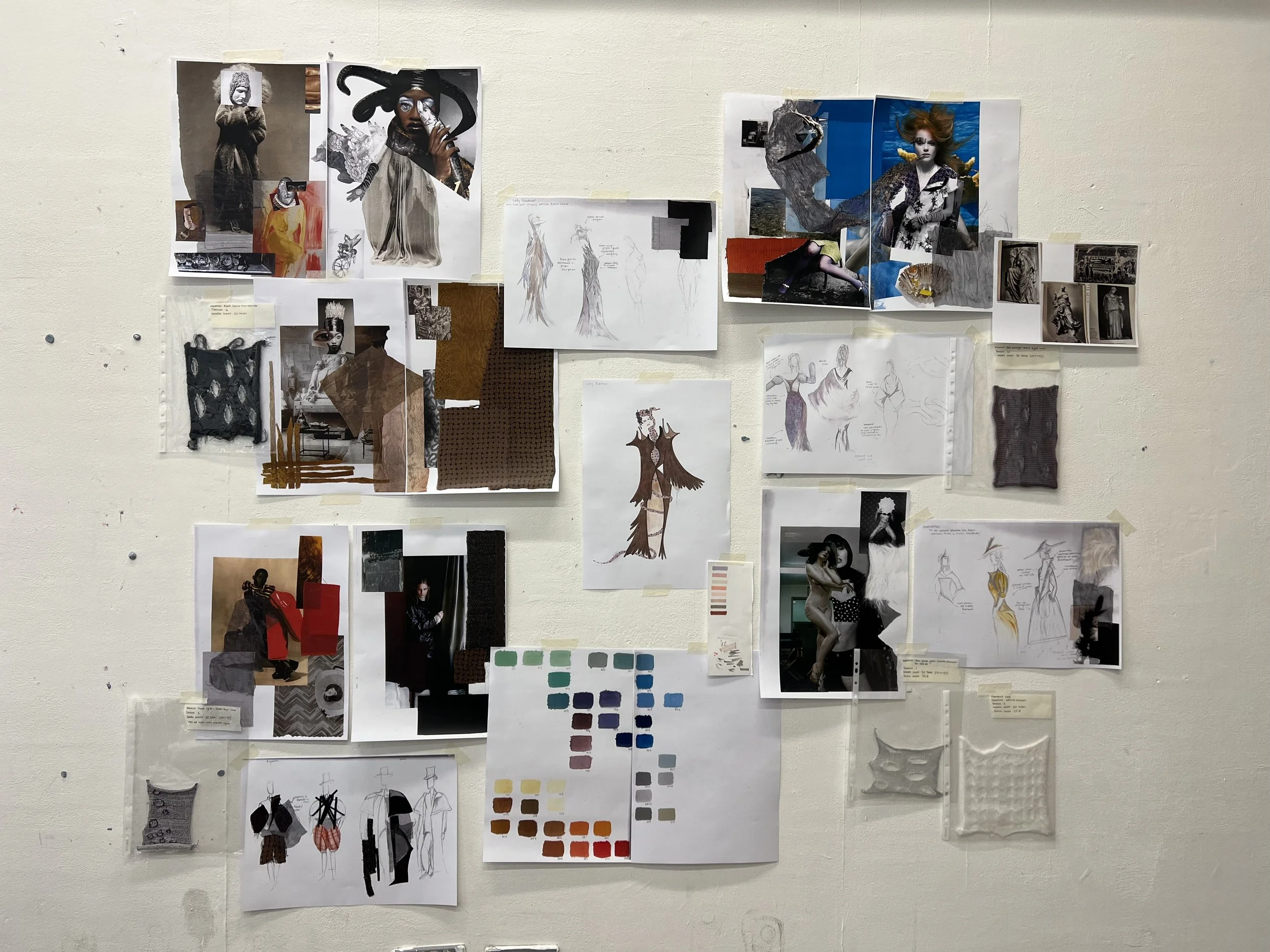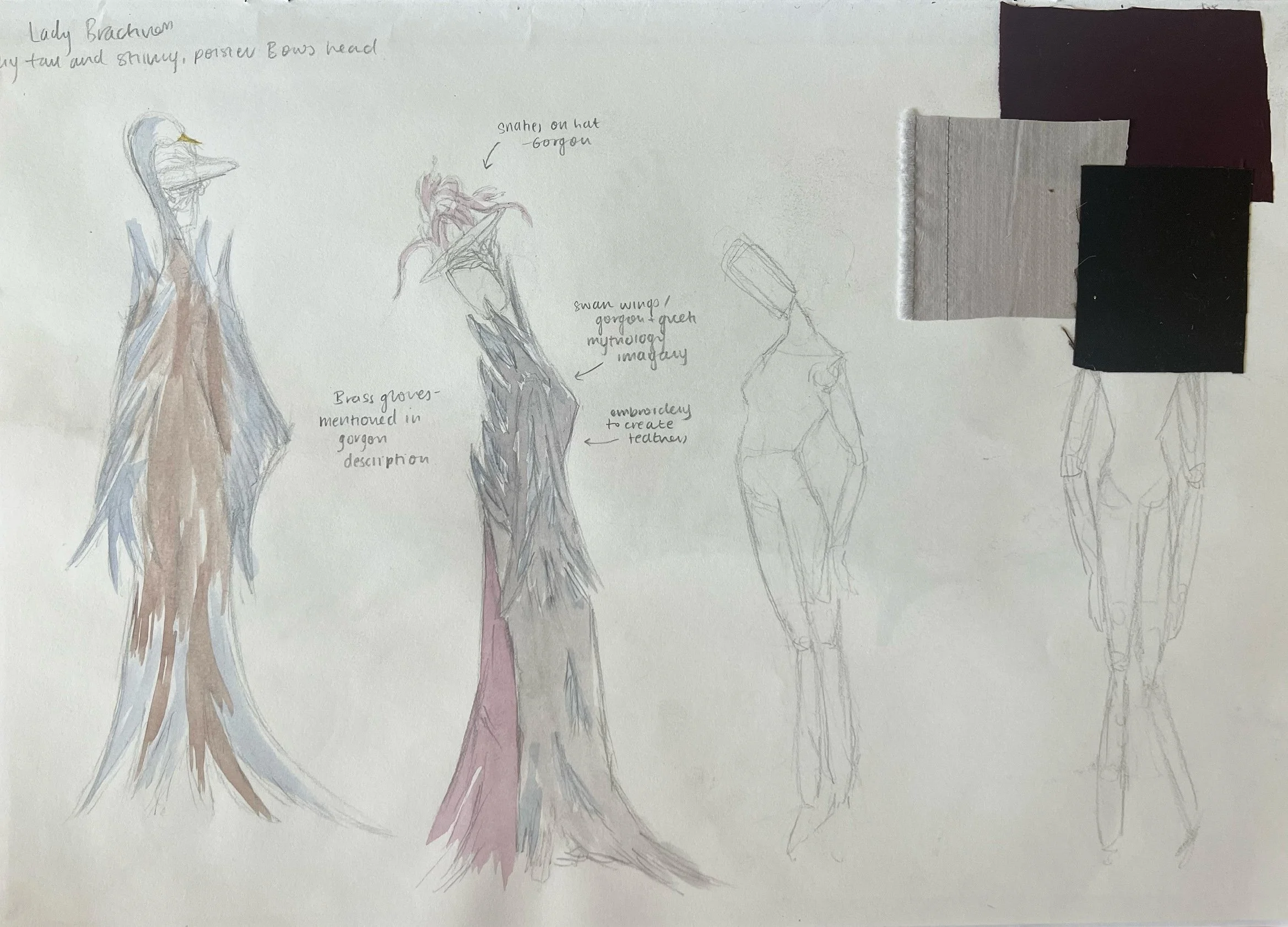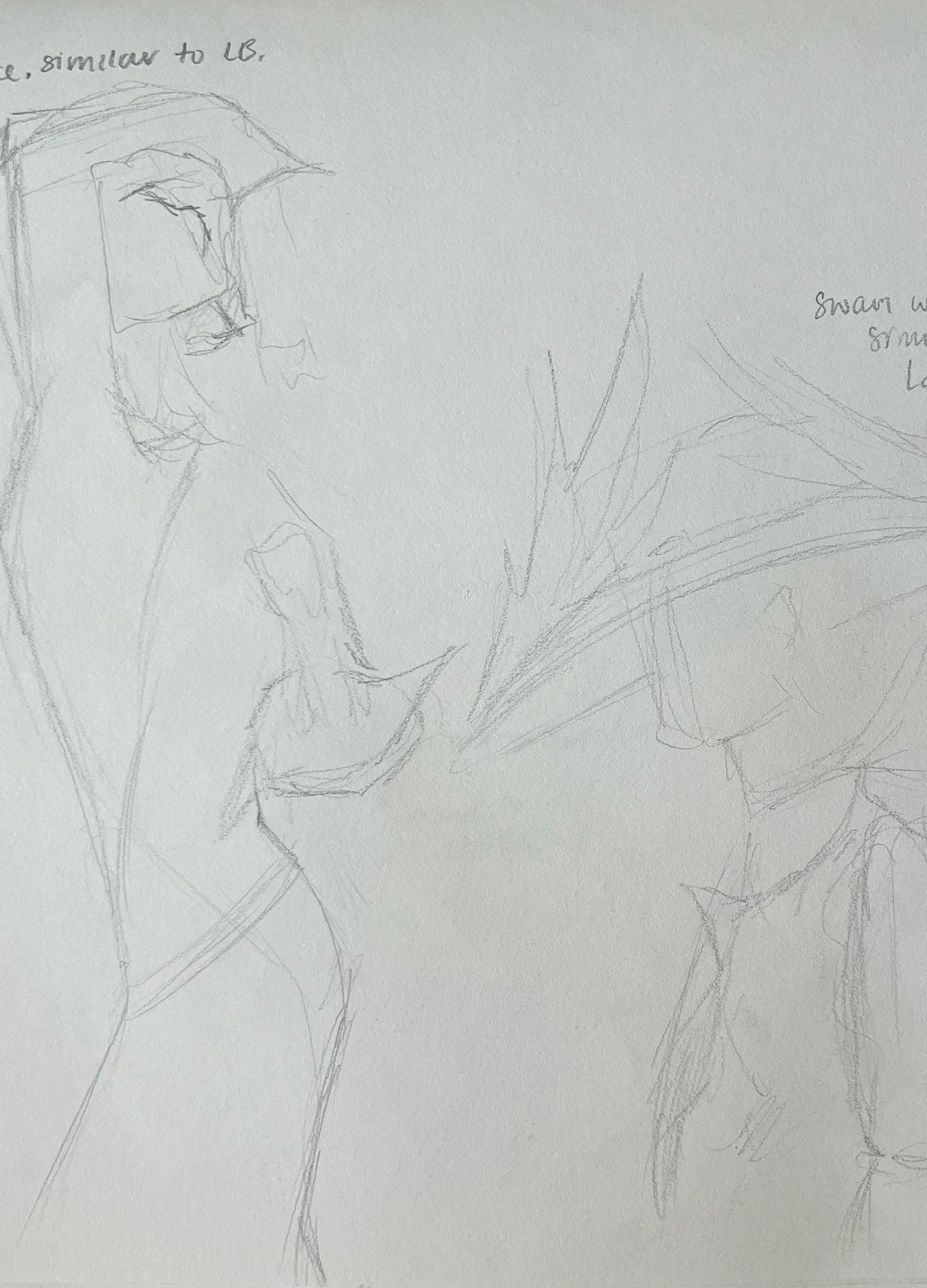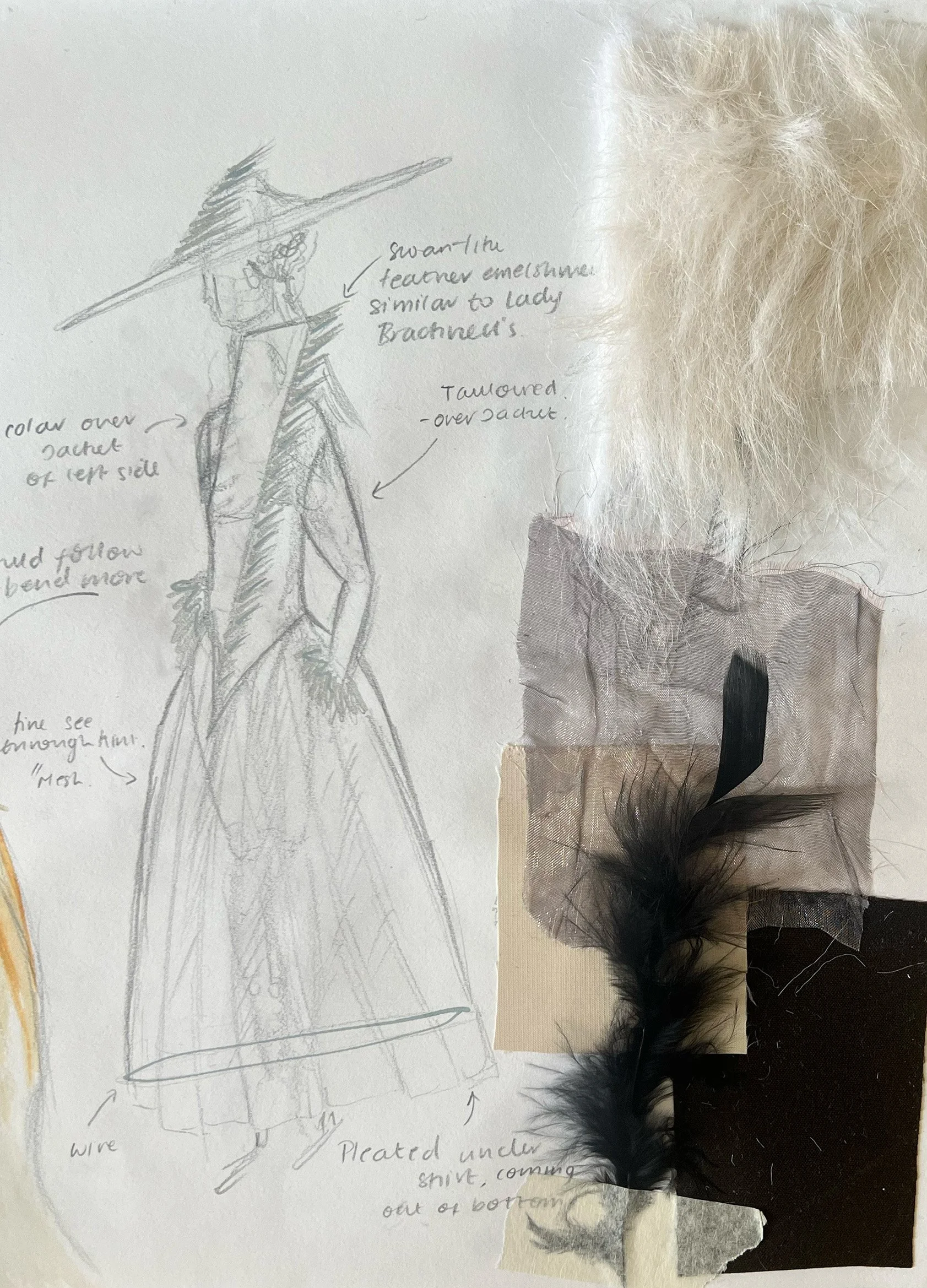‘The Importance of Being Earnest’
By
Oscar Wilde
Lady Augusta Bracknell
Cecily Cardew
Gwendolen Fairfax
Algernon Moncrieff and Jack Worthing
Research / Concept development Write-Up
I first became inspired through Cecily’s delusional and fantastical imagination. She had managed to dream up a reality where Algernon had proposed to her and written her dozens of letters, tied in blue ribbon. In this fantasy, she had broken it off with Algernon once, only to forgive him before the week had passed. ‘It would hardly have been a really serious engagement if it hadn't been broken off at least once’ she tells Algernon. Diving into this idea of alternative realities, I started to look for ways in which I could take this play, originally set on the cusp of the Edwardian era, into a whole new time frame, transforming it completely. Maybe as Cecily would have done.
Whilst Wilde mentions Roman Mythology, when Chasuble refers to Miss Prism as Egeria, a water spirit rooted in Roman Paganism, he predominantly draws sly allusions to Greek mythology.
Ironically, Oscar Wilde disliked how mythology relied on some moral query or question. Becoming the leading figure of the Aesthetic Movement, which aligned with Art Nouveau principles of creating ‘Art for art's sake’, he rejected the need for a “deeper meaning”. However, he admired how Greek mythology celebrated beauty and centred around individualism, and hence it became a source of inspiration. Upon reading ‘The Importance of Being Earnest’ it's funny that he positioned himself within the framework of creating art for only aesthetic purposes, as I would argue the play's humour relies on the obvious commentary on the workings of the English upper class. But perhaps reading it now, that’s made more obvious. It's completely likely that this would have been missed by the play's audience in the 1890s, consisting mostly of the middle and upper classes.
The successful creation of ‘meaningless’ art is debated. ‘It is not possible to create an art/literary work entirely without meaning’ says Jim Leftwich (2020), as the mere act of trying to do so immediately defeats the purpose of one's original goal. So, maybe Greek mythology influenced Oscar Wilde more than he’d like to admit? It’s influence is certainly clear in ‘The Importance of Being Earnest’.
In Act I, Scene 2, Jack describes Lady Brackwell as a ‘Gorgon’ ‘Without the myth’. This conjured up lots of imagery.. snakes for hair and wing-inspired silhouettes. Gorgons find their origin in the myth of Perseus, telling the story of three sisters, Medusa, Stheno and Euryale. They are known to symbolise wisdom and protectiveness, turning any onlookers to stone. Despite Jack casting aside associations with the myth, It seems to me that Lady Bracknell embodies their characteristics regardless. Her overwhelming protectiveness, almost possessiveness, over Gwendaline about her engagement to Jack and Algernon with his engagement to Cecily is a key part of this story.
Focusing more on the realisation of Lady Bracknell's costume, I honed in on these visuals. Her overcoat nods to the use of swan-like imagery and symbolization within artistic depictions of Greek mythology, in paintings such as Peter Paul Rubens ‘Leda and the Swan’. A snake spirals up her body, neck and rests on her head, like a hat, linking of course to the Gorgon sisters. The colour palette of purples and browns links to the fascination with purple within Ancient Greece.














